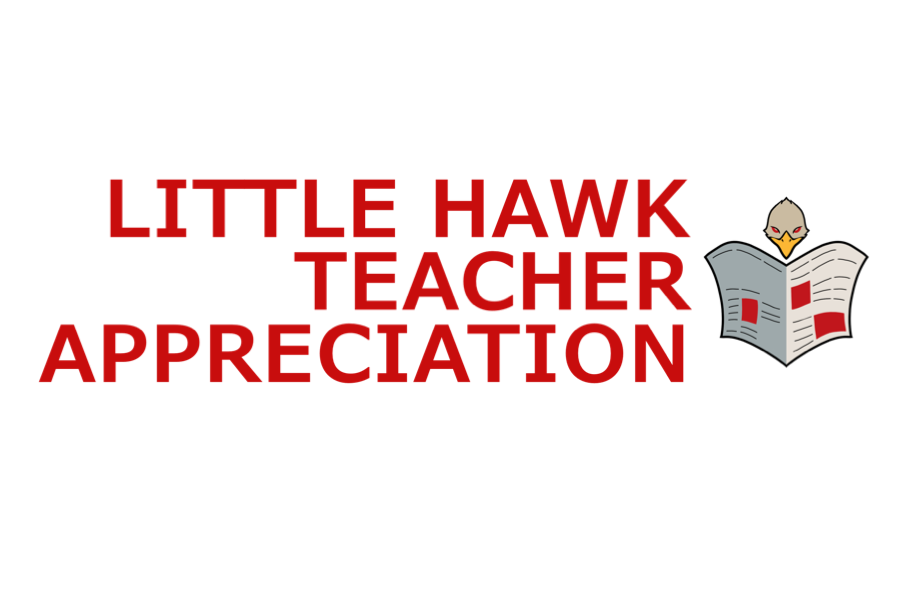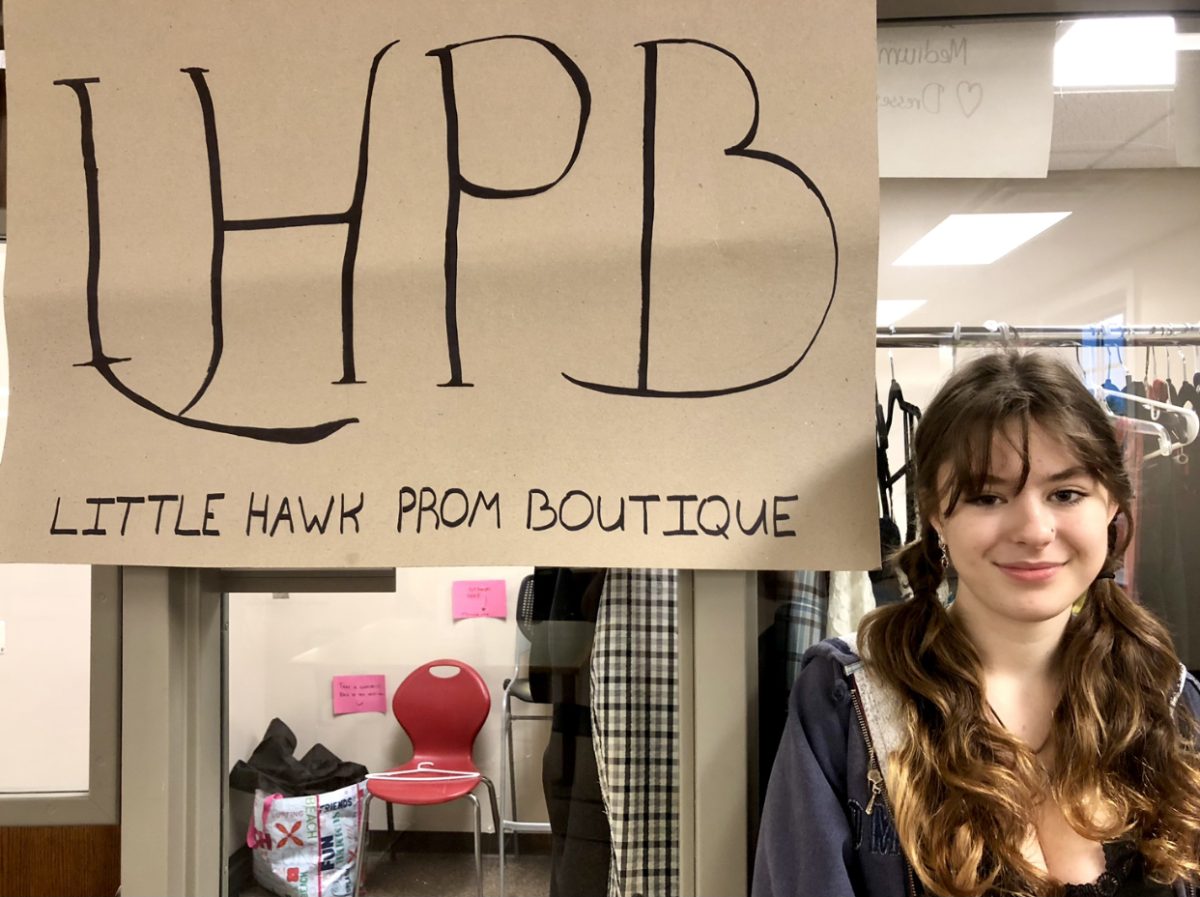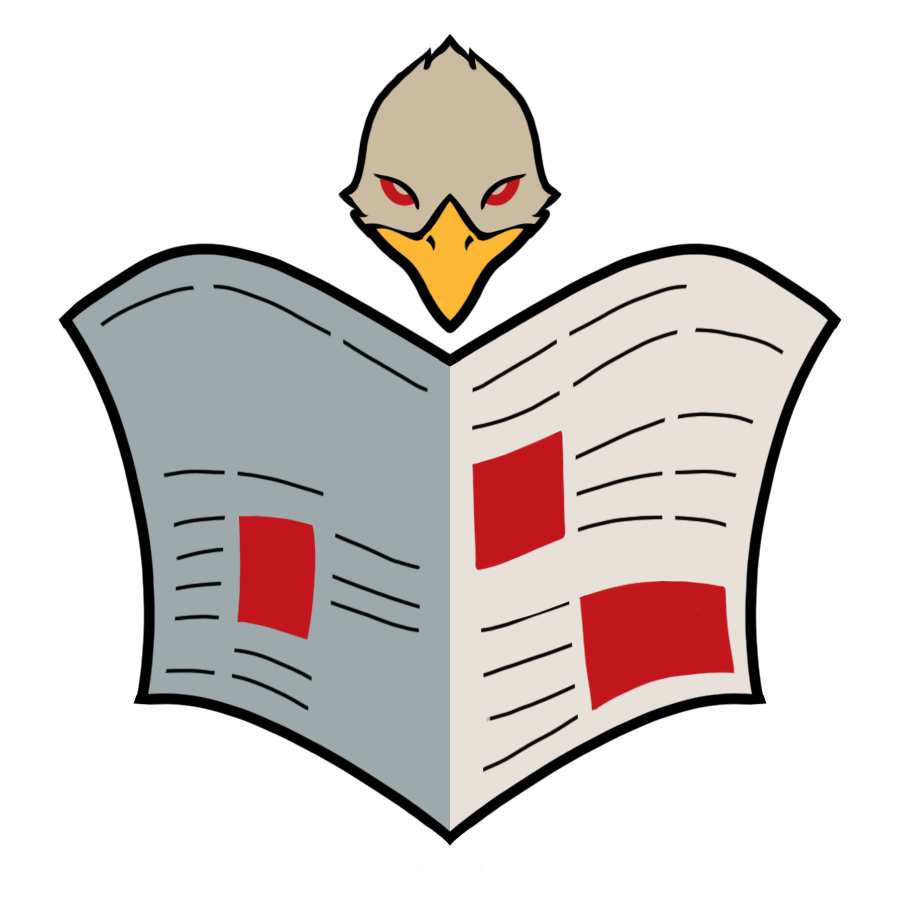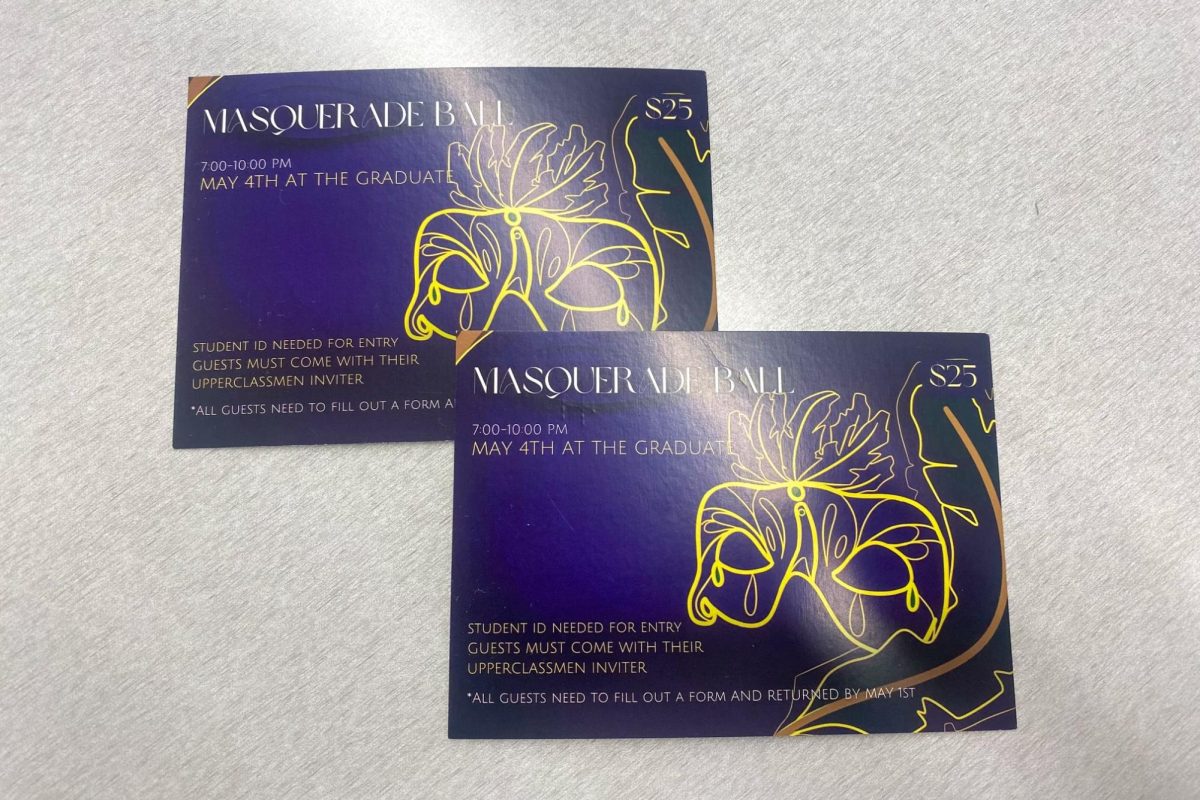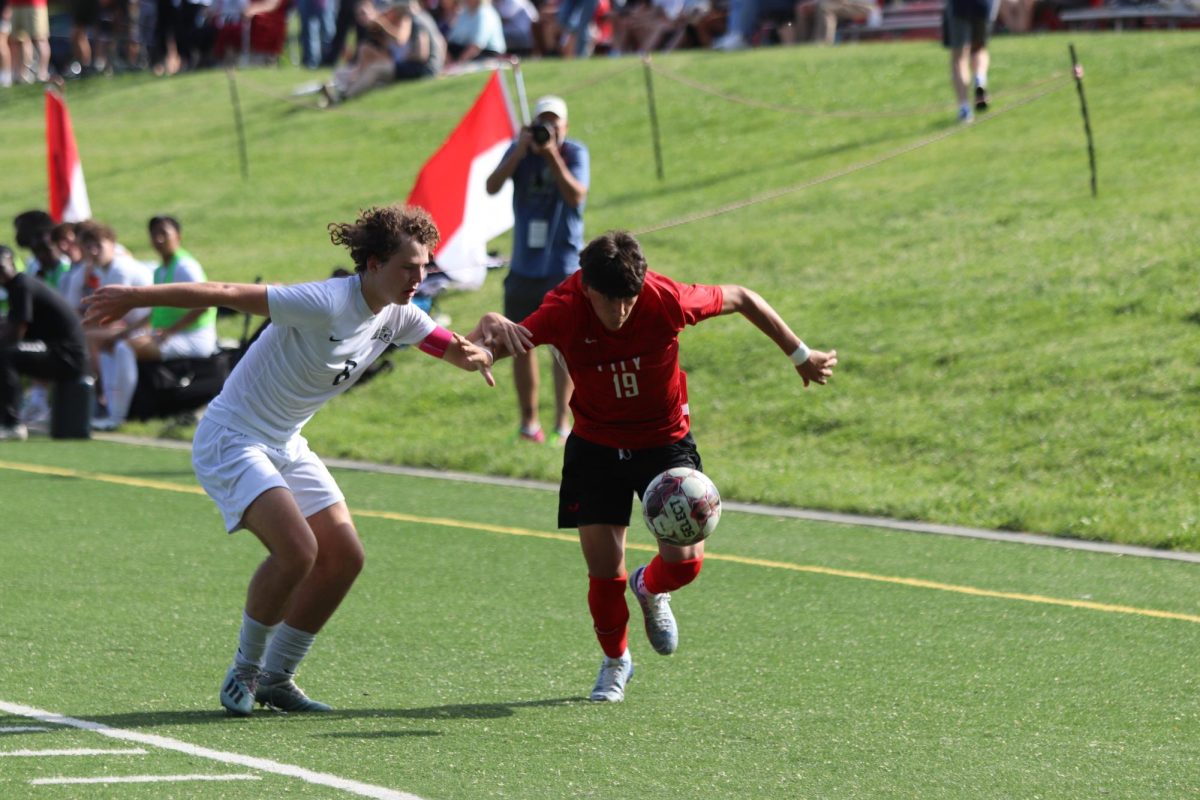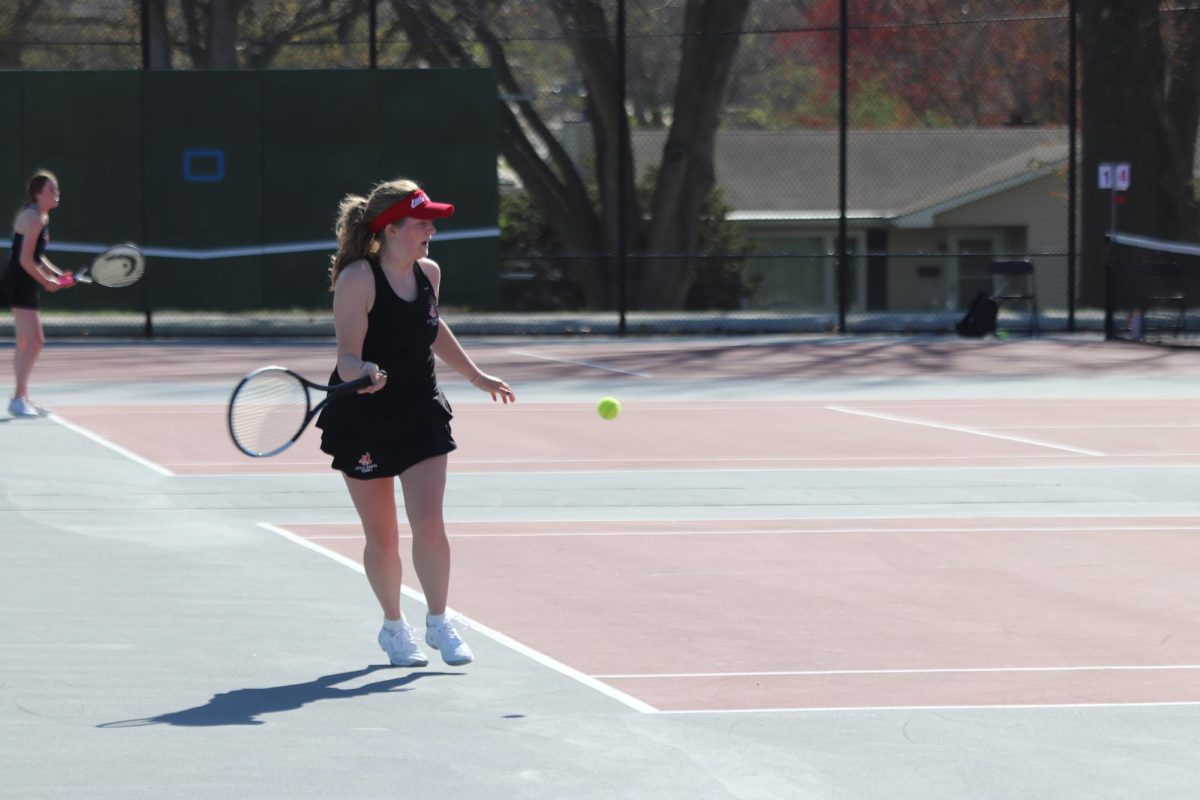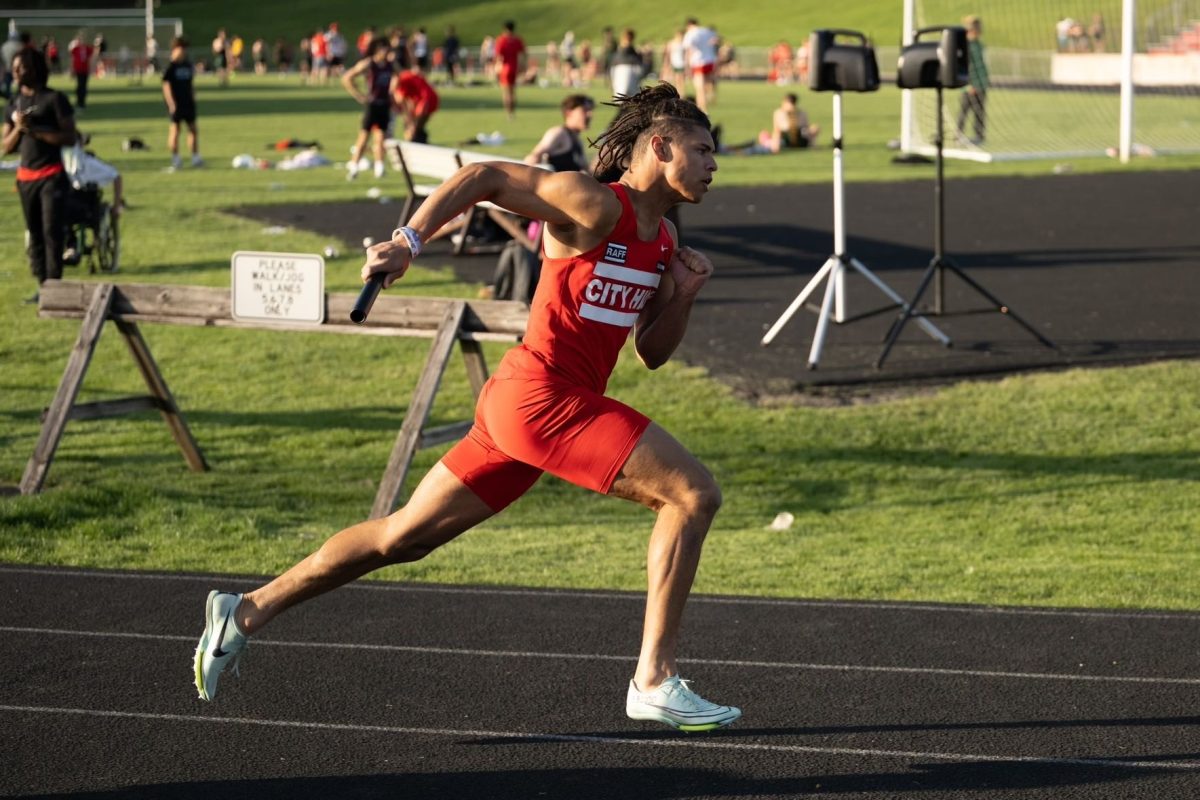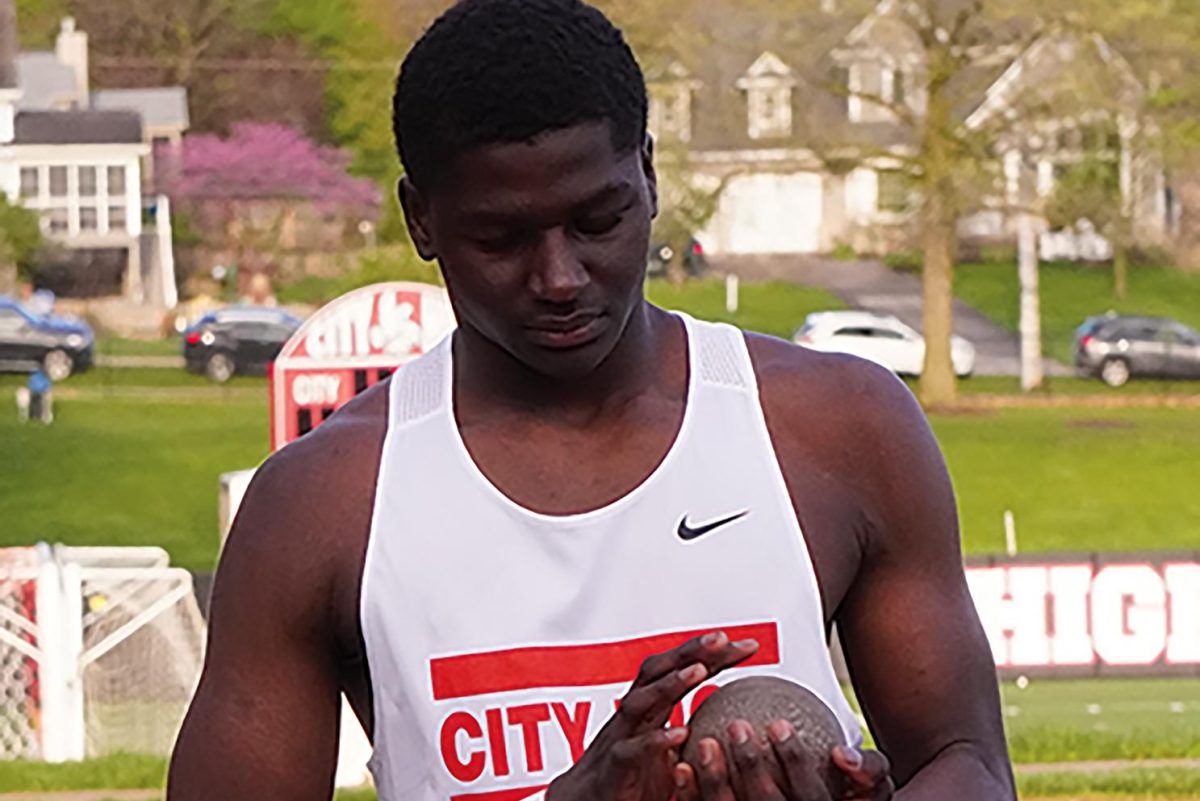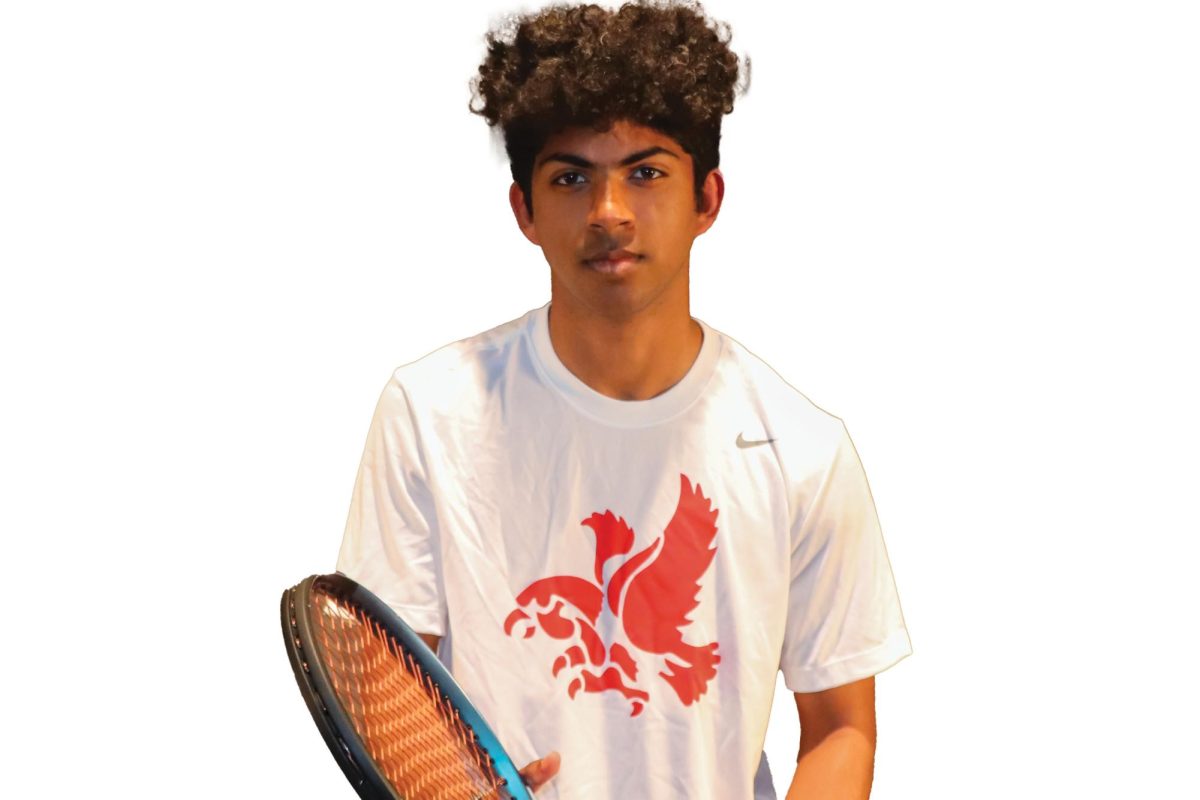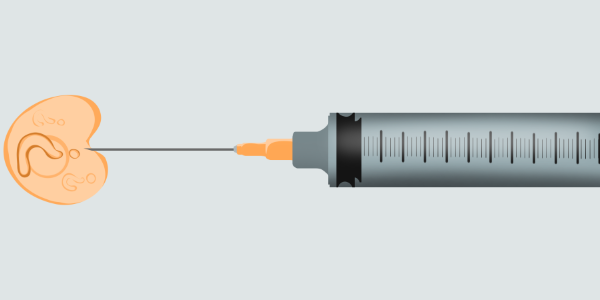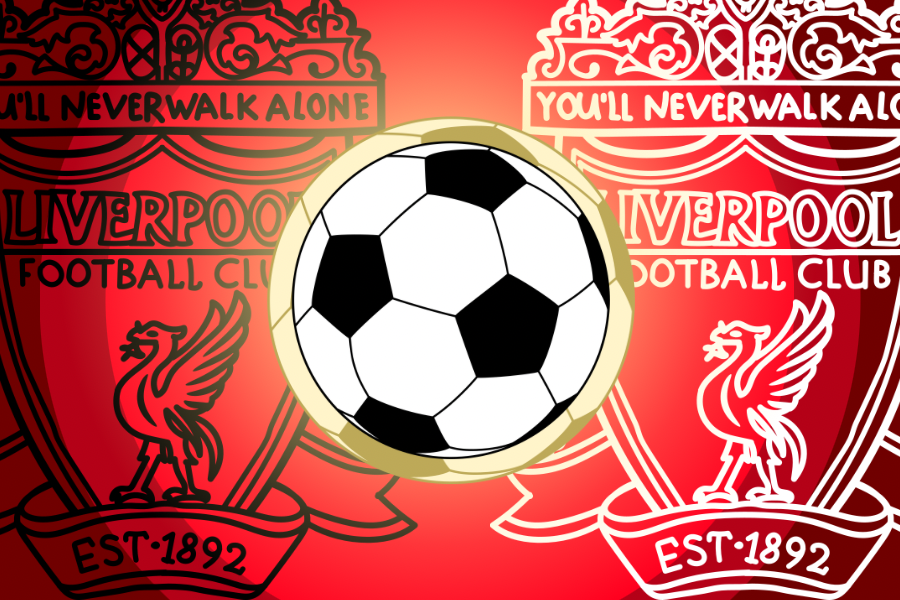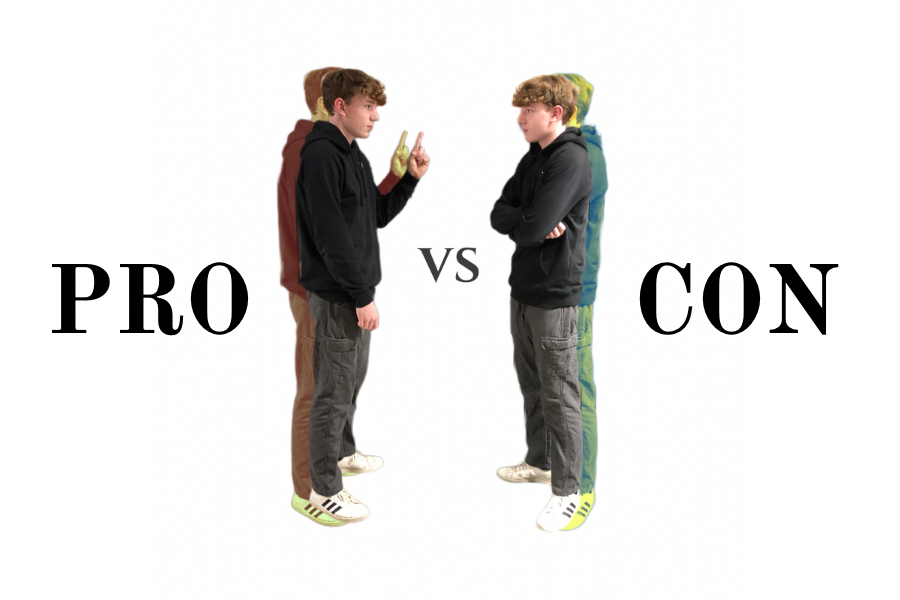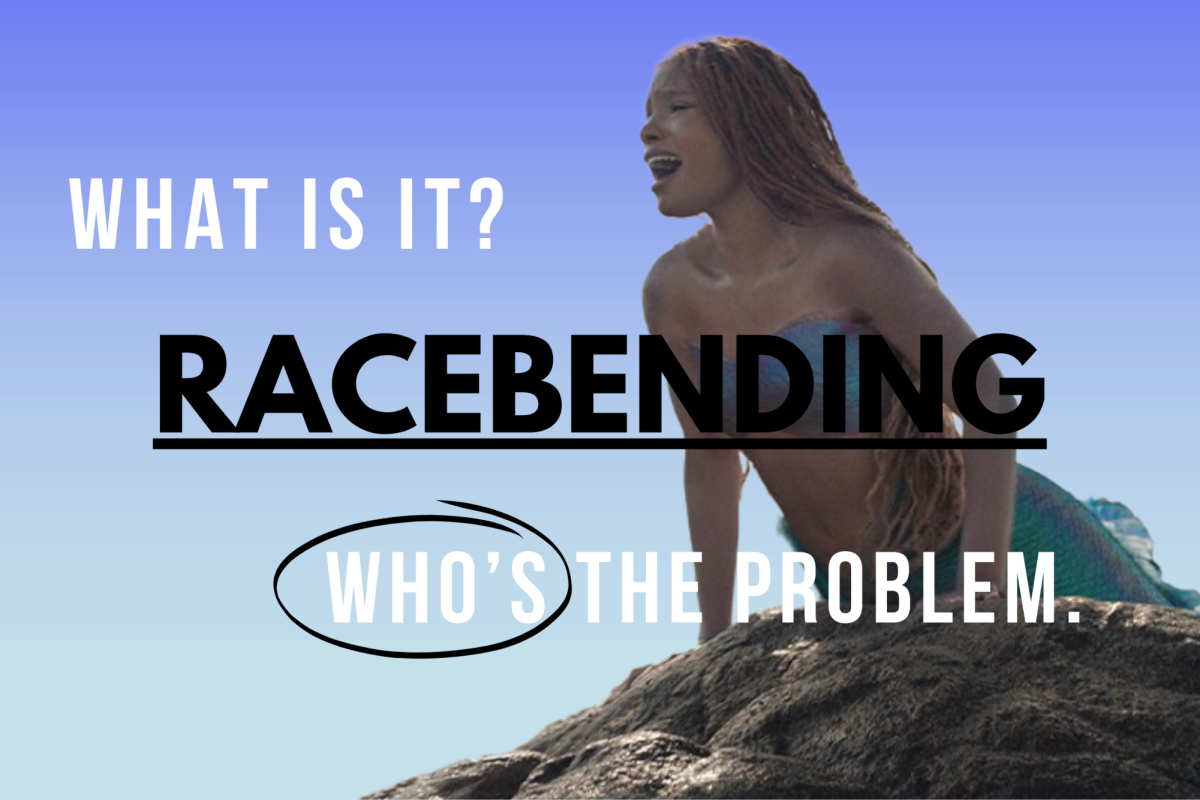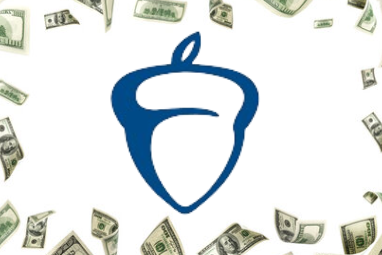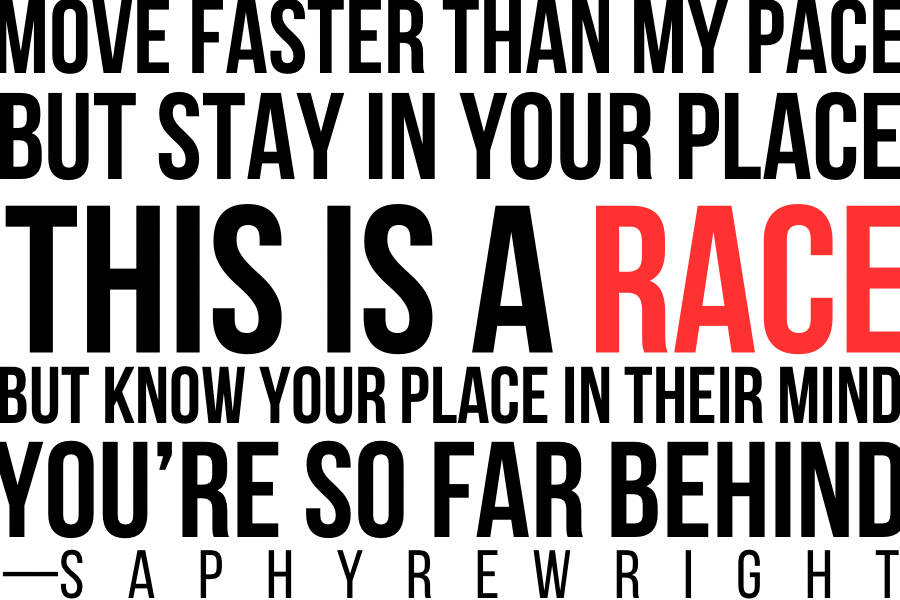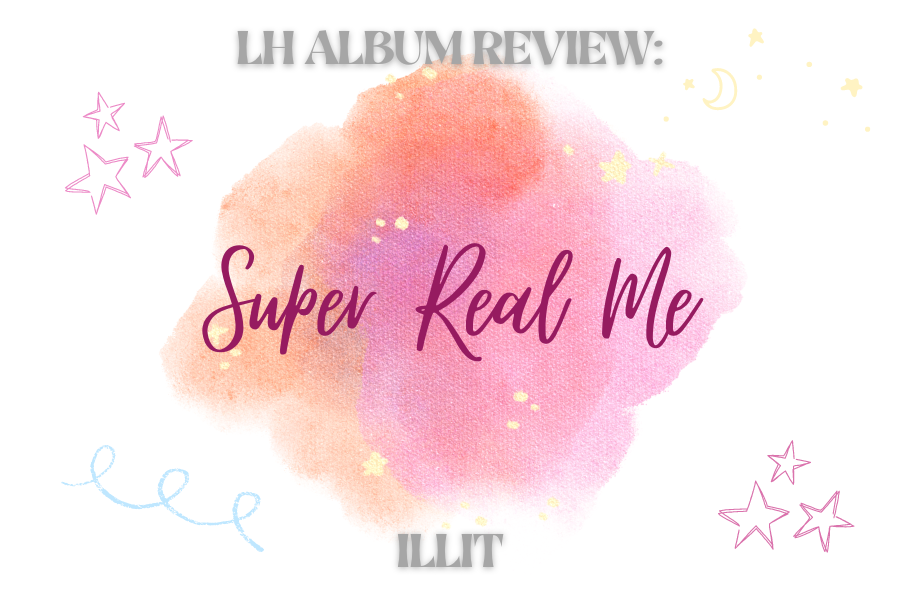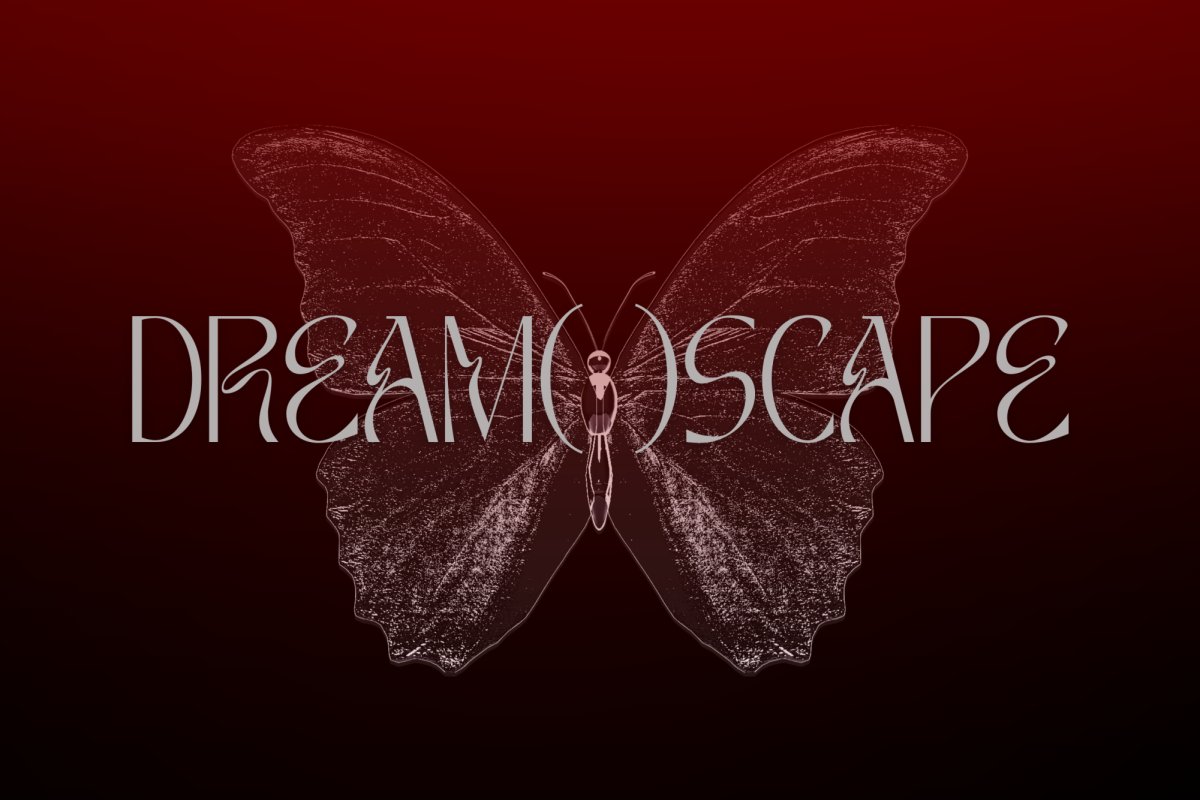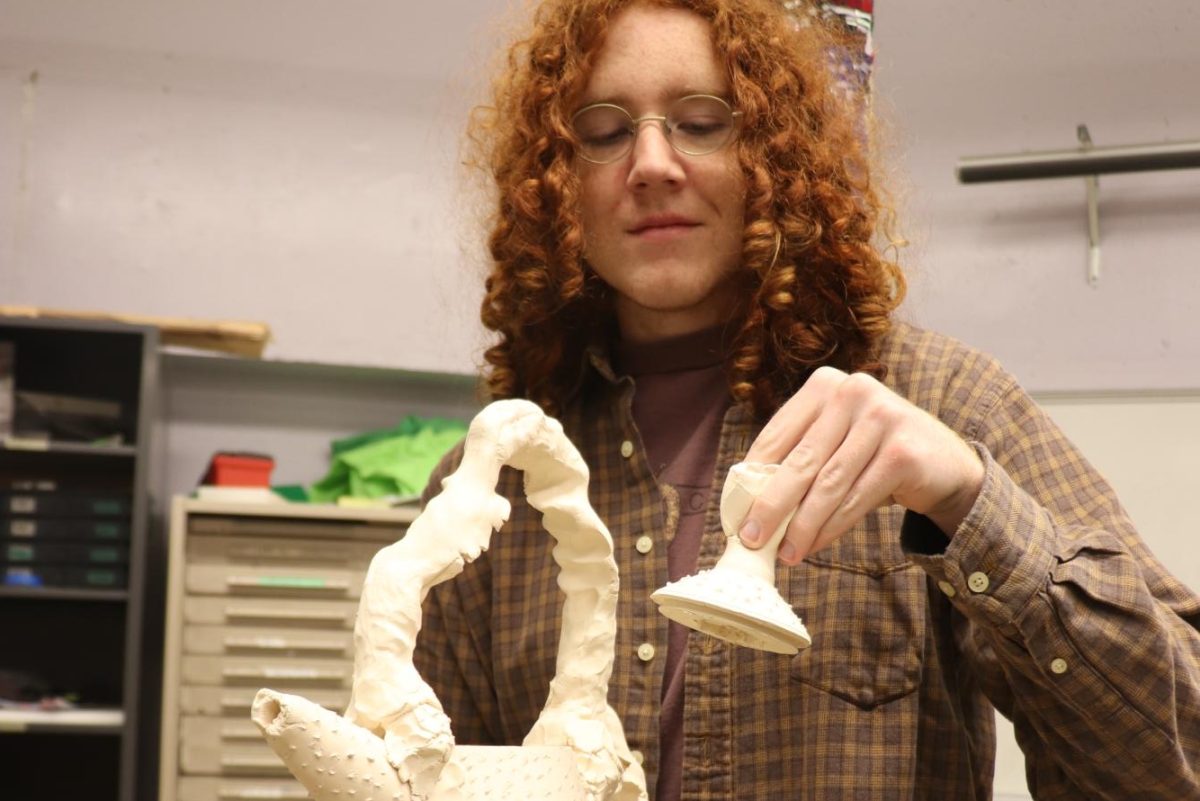ABOUT
Joining The Little Hawk
The Little Hawk is produced in the News Lab class at City High. Students can sign up for the class after completing Foundations of Journalism or with Mr. Rogers’ approval upon receiving a letter of application with a teacher recommendation.
Established
1926: Quill and Scroll Original Charter Publication
Mission Statement
The Little Hawk, the student newspaper of City High School, aims to inform, educate and entertain readers; to provide an educational opportunity for the students who produce it; and to provide a medium for commercial advertising.
Equity Statements
It is the policy of the Iowa City Community School District not to discriminate on the basis of race, creed, color, religion, national origin, gender, age, marital status, sexual orientation, gender identity, veteran status, disability, or socioeconomic status in its educational programs, activities, or employment practices.
Editorial Policy
Editorial ideas may be submitted to the editorial board by all members of the appropriate staff.
All printed editorial subject matter will be determined by the editorial board.
The media will not publish any material for which there is evidence that the author is using the paper for inappropriate personal gain.
The media will endeavor to provide a chance for comment on all sides of a critical issue in the same edition.
The editorial board, which consists of the staff ’s student editors, will determine the content, including all unsigned editorials. The views stated in editorials represent that of a majority of the editorial board. Signed columns or reviews represent only the opinion of the author.
Letter to the Editor and Story Queries
Email letters to the editor and story ideas to [email protected].
REGARDING STAFF DISMISSAL
All individuals involved with Little Hawk media are considered a team, each member is expected to complete all assigned stories, pages, photos, etc. on or before the assigned deadline. Staff members, including editors, may be dismissed from their positions and/or the publications staff itself if any of following violations occur:
-continuously missed deadlines (dismissal procedures will take place by choice of adviser and EICs)
-Plagiarism
-Quote falsification
-Vandalism or theft of publication equipment
-Continuous negative or pessimistic attitude toward staff member or adviser
-Submitting an advanced page design, story, photo or other publishable item to anyone outside the media -staff without approval by the editorial board
-Two suspensions in one academic year
-Failing to fulfill job as outlined in job description
Major infractions will result in immediate dismissal from staff duties and dismissal from class and staff at the end of semester(major infractions include but are not limited to following: plagiarism, vandalism, theft).
Minor infractions will be given a written warning for the first one. The second one is immediate dismissal from staff duties and dismissal from class and staff at end of semester.
Warnings will be written and signed by the adviser and editor-in-chiefs, as well as staff member in question.
An editor will be stripped of his her title if suspended.
First misdemeanor or arrest will result in the loss of editor’s title, and second will result in dismissal from staff.
Each member of the editorial board and adviser will attend a meeting with potentially dismissed student to discuss the issue, adviser will make final decision.
The academic nature of the school newspaper class allows removal of editors or staff members when school and or established media policy is violated.
The above list infractions could all result in dismissal however, staff dismissals are not limited to the listed infractions.
A dismissed staff member receiving academic credit may be given a grade of F and will not be allowed to register for any other journalism courses (will not preempt school policy).
Dismissal procedures are reviewed and approved by the editorial board
The dismissed staff member may appeal their dismissal in writing to the editorial board within three school days following dismissal
All dismissal appeals will be directed to the building principal and the editorial board
——
All Little Hawk Reporters Pledget to follow the NSPA Code of Ethics for High School Journalists
Be Responsible.
Understand that student journalists are custodians, not owners, of their news medium, and they have an inherent obligation in decision-making to consider the heritage of their news medium, the values of the school community, the tenets of the school mission, the pedagogic concerns of school officials, and the wants and best interests of readers/listeners/ viewers.
Be Fair.
Begin the search for truth with a neutral mind. Do not prejudge is- sues or events; wait until the facts and perspectives have been gathered and weighed. Discover truth without letting personal biases get in the way. Teach people to live by truth by presenting information objectively in a context that reveals relevance and significance.
Explore controversial issues dispassionately and impartially. Don’t go into a story with a personal agenda.
Justify coverage decisions by showing newsworthiness of story. Do not use your position with the paper to inflate your ego, favor friends, or advance other personal agendas that are self- serving. If you profile an “athlete of the week,” be ready to show the criteria and objective process for selection. If you are a yearbook staffer, avoid a conflict of interest by working on spreads where you are not tempted to choose photos of yourself or of your friends for publication.
Pursue a panoramic vision of issues and events to achieve balance and fairness. You may not know what the story really is until the story unfolds as you research it and talk with sources.
Welcome diverse perspectives and particularly rebuttals to editorial positions.
Refrain from “getting in the last word” by attaching an editor’s note to a letter to the editor. In rare circumstances, a clarification note may be justified.
Take initiative to give subjects of al- legations an opportunity to respond in a timely manner. Make a serious effort to contact those subjects before going with a story in order to allow a response.
Label or otherwise clearly identify editorials, opinion columns and personal or institutional perspectives.
Disclose any potential conflict of interest by a journalist or news medium. For example, conflicts of interests could involve personal relationships with news subjects or sources, associations with organizations, gifts and “perks” and vested interests in issues or events.
Appreciate the fact that at any given time a reporter sees only a part of what can be seen. Don’t jump to conclusions.
Be Honest.
Do not plagiarize. Plagiarism is defined as the word-for-word duplication of another person’s writing or close summarization of the work of another source without giving the source credit. A comparable prohibition applies to the use of graphics. Information obtained from a published work must be independently verified before it can be reported as a new, original story. This policy also forbids lifting verbatim paragraphs from a wire service without attribution or pointing out that wire stories were used in compiling the story. Material that is published on the Internet should be treated in the same way as if it were published in more traditional broadcast media. Because plagiarism can significantly under- mine the public trust of journalists and journalism, editors should be prepared to consider severe penalties for documented cases of plagiarism, including suspension or dismissal from the staff. Plagiarism is not only unethical, it is illegal if the material is copyright protected.
(3.2) Do not fabricate any aspect journalism work without full disclosure. The use of composite characters or imaginary situations or characters will not be allowed in news or feature stories. A columnist may, occasionally, use such an approach in developing a piece, but it must be clear to the reader that the person or situation is fictional and that the column is commentary and not reporting. The growth of narrative story development (storytelling devices) means that reporters and editors should be especially careful to not mix fact and fiction, and not embellish fact with fictional details, regardless of their significance.
(3.3) Identify yourself as a reporter and do not misrepresent yourself while engaged in news media tasks. For example, a source deserves to know if he is engaged in casual conversation with a student or more guarded conversation with a reporter. For another example, don’t misrepresent yourself by pretending to conduct an official survey for the school when in fact you are conducting it for the student newspaper.
Do not tolerate dishonesty of any staff member. One dishonest act of an individual can profoundly dam- age the reputation of a whole news organization. Be completely honest in reporting. Remember, half-truths can be just as egregious as outright lies.
Stand by promises, including protecting the identity of confidential sources. Consider sources’ motives before promising anonymity. Verify information given by an anonymous source. Be cautious in making promises; consult editors; take time to con- sider ramifications of promises; don’t be pressured.
Be guarded about the credibility of sources, and confirm questionable assertions. Do not be misled by insincere or unreliable sources. Try not to make reader guess whether a source is sincere. For example, an untruthful or embellished Q&A response can taint belief in the sincerity of other contributors as well.
Be cautious of using satire. Because it involves irony and sarcasm, it is often misunderstood. Because it usually involves ridicule, it could be carried to an inappropriate level in a school setting. Because special April Fool’s Day editions can damage a paper’s integrity and credibility, and because they can pose a libel risk, they are strongly discouraged.
Do not electronically alter the content of news and feature photos in any way that affects the truthfulness of the subject and context of the subject or scene. Technical enhancements, such as contrast and exposure adjustments, are allowed so long as they do not create a false impression. Photo content may be altered for creative purposes as a special effect for a feature story if the caption or credit line includes that fact and if an average reader would not mistake the photo for reality.
(3.9)
Strive to record original action in photos, and make sure readers are aware if a photo is set up or posed.
If using a recording device, get interviewee’s permission or make it obvious with the placement of the device that you intend to record. Know state laws regarding the legality of secretly recording private conversation.
Verify questionnaires answered by sources. Make sure no one posed as another person. Check comments for sincerity and accuracy.
Tell not only what you know but also what you do not know. Invite a source or news consumer to fill you in on something he knows but you don’t.
Engage in fact-checking every story. Train copyreaders to spot red flags and to verify questionable information.
Be Accurate.
Remember that accuracy is often more than just a question of getting the facts right. Accuracy also requires putting the facts together in a con- text that is relevant and reveals the truth.
Be a first-hand witness whenever you can. Gather raw facts. News releases, press conferences, official statements and the like are no substitute for first- hand accounts and original investigation.
Review story to make sure information is presented completely and in proper context that will not mislead the news consumer.
Know your subject’s history to help measure his credibility as a source. If the subject has a reputation for embellishing information, make sure to verify information with another source.
Be willing to read back quotes to check for accuracy. Sometimes a source may not be saying what he really means.
Record accurate minutes of student media staff meetings that involve policy decisions and other actions that will have a lasting effect.
Be Independent.
Recognize inherent differences be- tween the professional news media and the student news media, and understand that the latter will always be subject to some oversight by school administrators. Show administrators how it is in their best interests and the school community’s best interests to recognize student independence, within the parameters of law, in con- trolling the content of their news medium.
Work to have your student news medium recognized as a public forum, which will provide greater independence in controlling editorial con- tent.
Resist prior review as a practice of administrative oversight in favor of less intrusive and more effective oversight strategies. Prior review di- lutes student responsibility and puts more responsibility in the hands of administrators. Should the journal- ism experience teach responsibility or obedience?
Hold no obligation to news sources and newsmakers. Journalists and news media should avoid even the appearance of conflict of interest.
Accept no gifts, favors or things of value that could compromise journalistic independence, journalistic ethics or objectivity in the reporting task at hand. For example, a reporter covering a Spanish Club buffet event should not put his or her note pad and camera down to partake in the event.
Declare any personal or unavoidable conflict of interest, perceived or certain, in covering stories or participating in editorial or policy decisions.
Learn state laws regarding freedom of information, open meetings and shield laws. News media serve an essential function as a watchdog of government, and student journal- ists should not be asked to engage in any activity that is the responsibility of outside agencies, such as law enforcement, school administration and government. Cooperation or involvement in the work of these agencies should be restricted to what is required by law. Legal agencies, such as the Student Press Law Center in Virginia, may be contacted for advice.
Avoid working for competing news media or for people, groups or organizations that the journalist covers.
Show courage and perseverance in holding school officials and other decision-makers accountable when student control of student news media is threatened. Remember, students who produce non-public forum news media still have some rights regarding content decisions.
of interest. Journalists particularly should avoid holding office in student government, or they should be pre- pared to recuse themselves in either journalism or government forums when decision-making could pose a conflict of interest.
Be Accountable.
Admit mistakes and publicize prompt corrections. Expose unethical practices of student journalists and student news media, and make remedies.
Use press passes for admission or special privileges only in the capacity of a working journalist. Provide news media consumers with opportunities to evaluate student news media.
Be friendly and sincere in welcoming criticism and weighing grievances from news consumers. Have dialogue with student media overseers, and be prepared to justify decisions, policies and actions. Keep notes and recordings of interviews for an indefinite time as evidence of responsible reporting. Hold school administrators and other student media overseers accountable for their actions and decisions just as they hold student journalists and student media accountable for their actions and decisions.
Use the power of student media judiciously, and be prepared to provide rationale for any decisions or actions taken by news staffs.
(5.10) Give no favored news treatment to advertisers or special interest groups.
(5.11) Guard against participating in any school organizations or activities that would significantly create a conflict
(7.10) Use anonymous sources only if there is a compelling reason and only if the information given can be verified through another, known source. When sources are not given, people may question the credibility not only of the source but also of the news medium.


